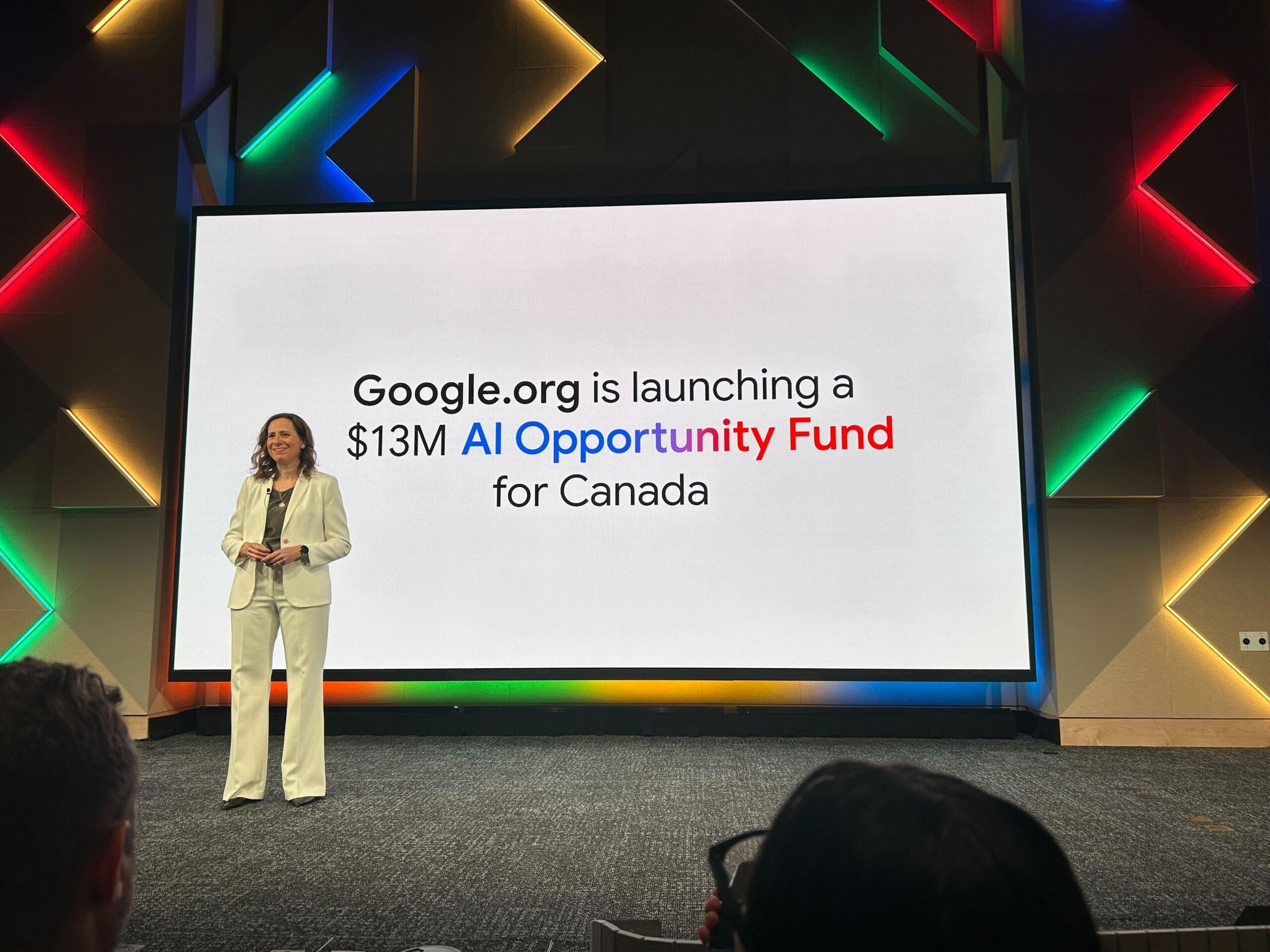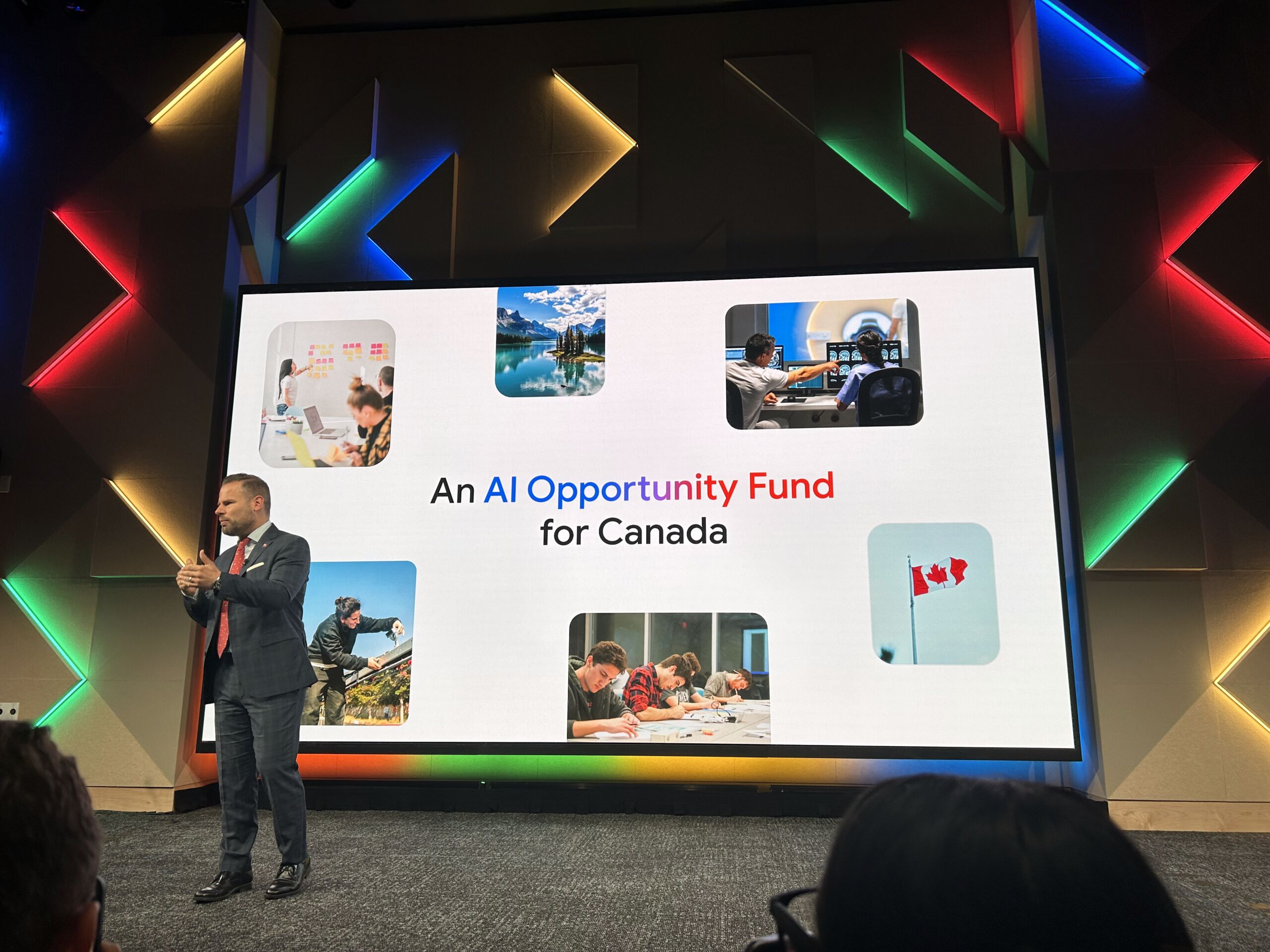UPDATED: 4 non-profits to share $13 million in Google funding for AI skills
Why It Matters
AI is a rapidly evolving technology, but this can make it difficult for workers to quickly upskill. By partnering with local social purpose organizations, Google is ensuring that marginalized communities have equitable access to AI training.

Note: This story has been updated from an earlier version.
Google Canada is giving four non-profit and community organizations money to start and scale up AI training programs across the country.
Called the AI Opportunity Fund, the $13 million donation will support the Alberta Machine Intelligence Institute (Amii), the First Nations Technology Council (FNTC), Skills for Change and the Toronto Public Library (TPL) to expand what Google calls their “best in class workforce development programs.”
“AI is transforming the way we work and can empower people across almost every field,” said Sabrina Geremia, vice-president and country managing director for Google Canada in a press release. “Canada is uniquely positioned to capture the immense AI opportunity, by putting this technology to work.”
At the announcement event Wednesday, Geremia called AI adoption and upskilling a “team sport.” Each of the non-profits chosen will work with a specific target group on AI skills: Amii will work with more than 125,000 post-secondary students; the FNTC will offer training to First Nations communities and Indigenous students in British Columbia; Skills for Change will develop programs for 20,000 individuals from communities that face high unemployment, and the Toronto Public Library will launch AI upskilling programs in its branches across the city.
Through the funding, Google hopes to see AI upskilling reach two million Canadians and prepare them for the future of work, added Natasha Walji, managing director at Google Canada.
Asked how Google chose the four organizations it would fund, Walji said there were three main criteria.
“We wanted to select organizations that were deeply embedded in their communities; organizations that had a very strong and successful track record of delivering skilling and training; and making sure we reach a diverse group of Canadians.”
The TPL was in the “emergent phase” of considering its role in AI upskilling prior to Google’s funding commitment, said Pam Ryan, the library’s director of service development and innovation.
“We have been doing quite a bit of digital literacy programming and skills development that definitely included AI topics, but not in the way that we’re moving to start now,” Ryan said.
TPL’s AI upskilling program has three main components, Ryan added: teaching AI skills through cohort-based learning and scholarships; selecting and installing generative AI tools into library computers; and organizing large-scale events to learn about AI.
The library already has free access to Google’s AI Essentials course for all Torontonians.
Ontario’s Minister of Labour, Immigration, Training and Skills Development, David Piccini, said changing ties to the U.S. are leading to “uncertain” times for Canada.
Having expanded the province’s Skills Development Fund by $1 billion over the next three years, Piccini expressed that AI training was a key part of Ontario’s development, and that Google’s funding will allow for a more “inclusive” approach to AI adoption.

According to a study by Public First and commissioned by Google, generative AI technology could add $230 billion to the Canadian economy.
However, there are criticisms of generative AI, including the environmental toll, the danger of job losses, and that generative AI learning models use creators’ work without consent.


